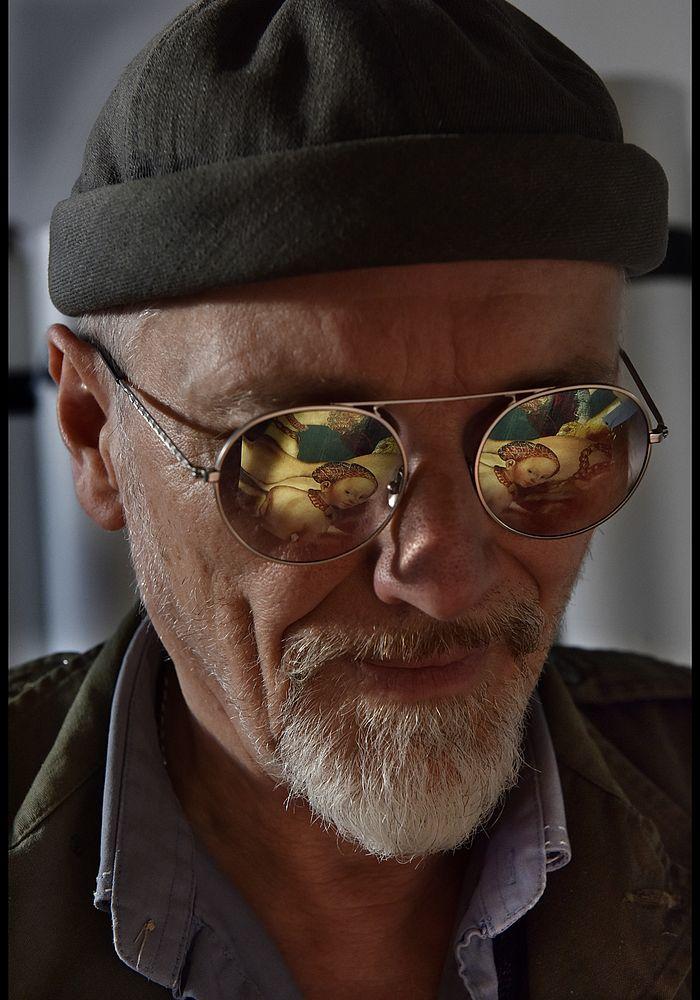Prophesied armageddons generally disappoint. In his only opera, Le Grand Macabre, György Ligeti created a large, discursive world theatre in which the plain, unvarnished human condition with all its drives and weaknesses is the cause of nothing less than an impending apocalypse. Into an imaginary, corrupt land of milk and honey – Breughelland, a vision of gluttony, drunkenness and lechery – Death arrives one day, otherwise known as Nekrotzar or the demonic Grand Macabre, to announce the impending destruction of the world and frivolous humanity. However, seduced by the pleasures of life, which he is unfamiliar with, the only person to die at the end is Nekrotzar himself. Everyone else draws the conclusion that their temporary survival should be used to continue their previous lifestyle.
Premiered on 12 April 1978 at Stockholm’s Royal Opera House, the work was a masterpiece, which not only constituted a central work in the oeuvre of the Austro-Hungarian composer but established itself permanently in the repertoire worldwide. Ironic distance, alienation, and consistent ambiguity which »takes what is serious humorously and what is comical in deadly earnest«, the basic theme of the opera – the necessary suspension of fear and the triumph of Eros – is developed before the eyes and ears of the audience.
Inspired by Kafka, Jarry, Herzmanovsky-Orlando, Goethe’s Faust, the mediaeval mystery plays, and also by Pop Art and Hieronymus Bosch, Ligeti’s concept for Le Grand Macabre was a »brightly coloured, comical event where the characters and stage situations should be direct, brief, unpsychological, surprising and still entirely sensuous«. His source was the 1934 play La Balade du Grand Macabre by a Belgian, Michel de Ghelderode. This is also the source of the French title of the original German libretto, which the composer wrote together with director and puppet maker Michael Meschke. Ligeti – who is strongly synaesthetic, associating colours and shapes and even machinery and physical equipment with music, and conversely sounds and noises with colours, words, and letters – was also seeking in Le Grand Macabre the »total fusion of action and music«, a stage event through music. It should be noted that this is a deliberately bizarre and »exaggerated music«, distinguished by its positively irregular orchestration. Besides the relatively small number of strings, representing the lyrical element, the orchestra includes a bass trumpet, a harmonica, whistles, six doorbells and (not least) 12 car horns in different keys, which open the opera like a fanfare and symbolize the corrupt and ungovernable world of Breughelland, while also recalling the Monte- verdian toccata opening L’Orfeo.
The score is enriched and alienated by quotes from Eu- ropean classical music. Ligeti, who felt no obligation to any tradition, clearly preferred Romantic opera music, specifically Verdi, Rossini, Offenbach, Rameau, Monteverdi, Mozart, Liszt, Schumann, Schubert and Stravinsky to the »music drama concepts of Wagner, Strauss and Berg«, which he rejected. Ligeti achieved additional colour by a fusion of what he described as artificial folk music, the most different styles of material – Brazilian sambas, Andalusian flamencos, Bulgarian rhythms, Hungarian verbunkos. All of this is held together by a playful handling of historical forms of composition. For example, he uses chorales, mirror canons, bourrée perpétuelle, passacaglias and ostinatos. In its general form, the entire opera is designed as a gigantic Meistersinger Bar, with the first three scenes as Stollen (stanzas) of similar length, and the fourth a shorter Abgesang (aftersong).
Based on the experience of stage practice in daily opera production and the first series of international performances, Ligeti revised the score in 1996, reducing the number of spoken passages, entirely reworking many places and some parts of the instrumentation.

